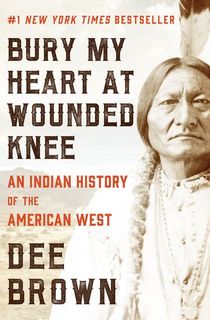One of the greatest figures in American mythology is that of the pioneer. With movie characters, cartoons, mascots, and more based on the trailblazing spirit, pioneers have carved out a significant space for themselves in American culture. And it’s no surprise why.
Pioneers were men, women, and children who left their homes and started new lives in new territories, which is exactly how Europeans first came to settle on the East Coast in the earliest days of America’s beginnings. This spirit has bolstered multiple migrations of American people into new frontiers. From the westward expansion across the Great Plains to California in the 19th century, to the Homestead Act that brought Americans to the Alaskan frontier in the 20th century, the pioneering spirit has kept its hold on American culture, though it's also controversial for the hardship and conflict it brought upon Native people and cultures.
There’s plenty of history behind the American pioneer, and we’ve selected 11 titles about pioneers to help you brush up on your knowledge of frontier life, and maybe even inspire you to embark on your own journey.
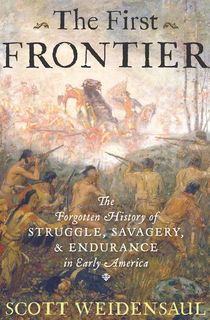
The First Frontier
Before Lewis and Clark, and wagons crossing the plains towards the West Coast, the East was the frontier to European settlers. The land between the Atlantic and the Appalachian Mountains is marked by a complex history of conflict between Native cultures and European colonizers. The First Frontier illustrates two and a half centuries of history through personal stories of America’s first pioneers living through the tumultuous time period of America’s earliest beginnings, like those of a Harvard-educated Native American caught in 17th-century warfare and a Puritan woman and the scalping knife whose bloody actions still resonate today.
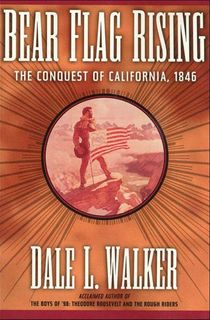
Bear Flag Rising
In this history of California, Dale L. Walker traces the story of the Indigenous peoples who inhabited the land before the arrival of European settlers, and through the warfare that would eventually leave the territory in the hands of the United States. The lives of the Native Americans that lived in peace prior to Mexican rule over the land and the first appearance of American trappers, and the battles that were fought to reclaim the province are chronicled in Bear Flag Rising. Follow the journeys of the first pioneers to reach California and the lives and history that were forever changed as a result.

The Ohio Frontier
The Ohio frontier was the site of some of the most violent clashes between Natives and American settlers, the results of which would shape the United States' Indigenous and military policy throughout the region. The Ohio Frontier tells the story of the Shawnee, Wyandot, and Delaware peoples who fought to preserve their land claims against the invading American settlers, and the land of refuge, opportunity, and violence that served as the social, political, and economic foundation for the settlement of the Old Northwest.
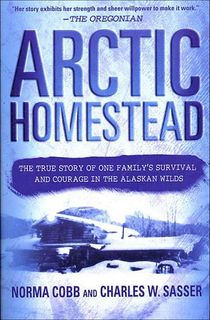
Arctic Homestead
A century after the first American settlers reached California, a new era of pioneers ventured to Alaska under the Homestead Act. Nora Cobb and her family embarked on their own journey in 1973 and claimed land north of Fairbanks near the Arctic Circle. The area was home to grizzlies and other predatory animals, as well as some of society’s most unscrupulous neighbors who would steal from new settlers, threaten them, and try to drive them out. Arctic Homestead is the story of how the Cobbs faced the dangers of the Alaskan frontier, its predators, and the elements, and managed to survive.
Bury My Heart at Wounded Knee
The land settled by American pioneers was not uninhabited, and Bury My Heart at Wounded Knee tells the story of the systematic annihilation of Native American tribes across the Western frontier. The battles, betrayals, and massacres suffered by Native Americans between 1860 and 1890 and the many renowned chiefs who struggled to combat the heartbreaking destruction of their peoples and culture are brought vividly to life. The ebook also contains some shocking rare photographs from Dee Brown’s personal collection.
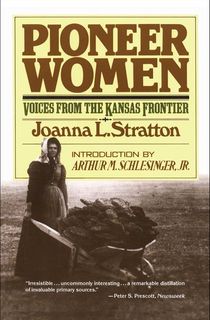
Pioneer Women
This record, based on a collection of autobiographical accounts written by hundreds of pioneer women living on the Kansas frontier, is a detailed account of the courage and determination required to settle the frontier. Pioneer Women vividly expresses the danger and excitement of the Kansas frontier, as well as the incredible tenacity required by pioneer women to survive.
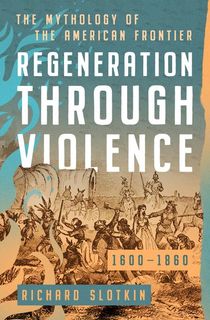
Regeneration Through Violence
Historian Richard Slotkin examines how the attitudes and traditions that shape American culture evolved from the social and psychological anxieties of European settlers struggling to claim land and displacing Native Americans. Using literature from the 17th, 18th, and 19th centuries, including captivity narratives, Daniel Boone stories, and the writings of Thoreau, Hawthorne, and Melville, Regeneration Through Violence traces the origins of the mythical American West, and compares it to the harrowing reality of Westward expansion.
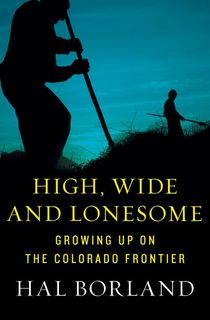
High, Wide and Lonesome
In this memoir, Hal Borland tells the story of his family’s experience homesteading in eastern Colorado after migrating there at the turn of the 19th century. On an unsettled prairie landscape, the Borlands built a house, planted crops, and managed to sustain themselves. With no neighbors, and no help save each other, the family is brought closer together by the hardships they face. Through their struggles, the Borlands become closely entwined with the natural patterns that govern their lives, and High, Wide and Lonesome narrates their experience.
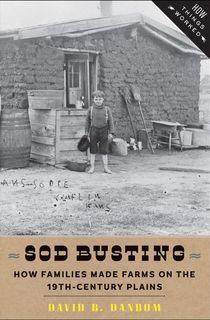
Sod Busting
Prairie busting was central to life in the Western frontier, and it was accomplished only with human and animal power. David Danbom analyzes the physical and climatic obstacles of America’s inhospitable frontier and how settlers on the plains managed to shelter themselves, access fuel and water, and prepare the land for agriculture. In a post-industrial context, Sod Busting examines the economic motivations of pioneers and how they built their farms to turn a profit using contemporary accounts, settlers’ own tales, and the work of other historians.
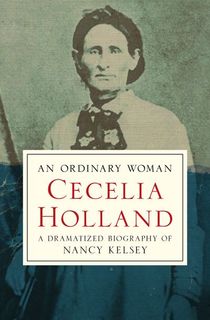
An Ordinary Woman
In this remarkable account of the first American woman to enter California, author Cecelia Holland tells the tale of Nancy Roberts Kelsey. As a 17-year-old wife and mother, Nancy Kelsey set off alongside her husband in pursuit of a new life in the West. Halfway through their journey, their party splits, and the Kelseys decide to travel across the Great Basin and over the Sierra Nevadas, encountering hostile tribes and merciless weather until they reach California, where more conflict awaits. This book was written with Nancy Kelsey’s own letters and writings to provide a firsthand account of the pioneer woman’s experience.
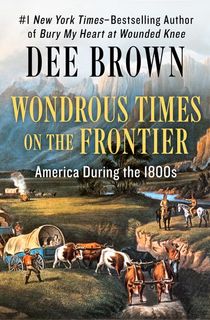
Wondrous Times on the Frontier
Another captivating representation of life on the American frontier from author Dee Brown, Wondrous Times on the Frontier examines the aspects of the frontier spirit that would become central to American mythology. Split into sections based on different features of pioneer life and mindful of certain stereotypes of Western life, Brown’s book is a stunning account of the hardships, danger, and resilience of life for settlers on the frontier.
This post is sponsored by Open Road Media. Thank you for supporting our partners, who make it possible for The Archive to continue publishing the history stories you love.

